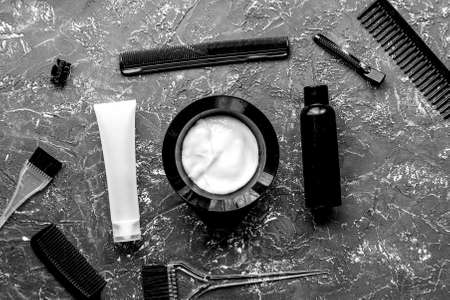Understanding Zero-Waste Beauty: The British Perspective
Zero-waste beauty is more than just a trend in the UK—its becoming a way of life for many Brits who are passionate about sustainability and reducing their environmental impact. In Britain, the concept goes beyond merely recycling or using fewer plastics; it’s about rethinking every step of your skincare routine to eliminate unnecessary waste from the get-go. Across cities like London, Manchester, and Edinburgh, people are increasingly aware of how single-use packaging and throwaway culture contribute to landfill problems and marine pollution. The British approach is shaped by local issues—such as strict recycling regulations, the popularity of refill shops, and campaigns led by organisations like Greenpeace UK—which all influence how men and women alike view eco-friendly grooming. There’s also a growing pride in supporting home-grown brands that prioritise reusable packaging or source ingredients responsibly. Check out the table below for an overview of the key British concerns and attitudes toward zero-waste beauty:
| Local Sustainability Concern | British Attitude |
|---|---|
| Plastic Packaging Waste | Preference for glass jars, metal tins, or compostable materials |
| Carbon Footprint from Imports | Support for locally-made products and UK-based brands |
| Recycling Complexity | Interest in refill stations and closed-loop schemes |
| Animal Welfare & Testing | Strong demand for cruelty-free certification |
This distinctly British mindset sets the stage for a practical, down-to-earth approach to zero-waste skincare—where simplicity, quality, and community values come first.
Choosing Refillable and Recyclable Packaging
When it comes to building a zero-waste beauty routine in the UK, choosing refillable and recyclable packaging is a game changer. Many British brands have stepped up their sustainability game, offering innovative solutions that make it easier for us blokes to look after ourselves—and the planet. Brands like Lush, Neal’s Yard Remedies, and The Body Shop have set up refill stations in select stores across the UK, letting you top up your favourite products without buying new bottles every time.
British Brands Leading the Way
| Brand | Refill Options | Recyclable Packaging | Where to Find |
|---|---|---|---|
| Lush | Shampoo bars, shower gels (in-store refills) | 100% recycled pots & bottles | Lush Stores Nationwide |
| The Body Shop | Refill stations for shower gel, shampoo & more | Recyclable aluminium bottles | Select High Street Stores |
| Neal’s Yard Remedies | Refill scheme for some skincare items | Glass and recycled plastics | Covent Garden & Nationwide Outlets |
Practical Tips for Shopping Sustainably
- Bring your own containers when visiting shops with refill stations. Some retailers, like Lush, even reward you for returning empties.
- Look out for clearly labelled recyclable packaging—Boots and Holland & Barrett now stock more eco-friendly beauty lines, so check the packaging before you buy.
- If you’re shopping online, opt for brands that use minimal or plastic-free delivery materials. Many UK companies are transparent about their packaging policies on their websites.
Your Local Favourites: Boots & Holland & Barrett
Bigger high street names are catching on too. Boots has introduced ranges with recyclable packaging and sometimes runs recycling schemes where you can drop off empties in-store for perks. Holland & Barrett stocks a variety of natural brands using glass or compostable containers—ideal if you want to try something different from your usual routine.
Switching to refillable and recyclable options doesn’t mean sacrificing quality or convenience; it just means being a bit savvier about where and how you shop. Next time you pop down the high street or browse online, keep an eye out for those refill logos and recycling symbols—it all adds up to less waste and a cleaner conscience.

3. Homegrown Ingredients: Sourcing & DIY in Britain
If you’re serious about embracing a zero-waste beauty routine, nothing beats the power of homegrown British ingredients. Not only does this cut down on packaging and transport emissions, but it also connects you with the land and traditions right outside your door. Let’s be honest—there’s something genuinely satisfying about crafting your own skincare with ingredients you know and trust.
Why Go Local?
Britain is bursting with natural skincare heroes. By sourcing locally or growing your own, you minimise carbon footprint and support sustainable agriculture. Plus, it’s easy to find high-quality staples like oats (perfect for gentle exfoliation), honey (renowned for its antibacterial properties), and lavender (soothing for both skin and senses). These can often be found at farmers’ markets, local co-ops, or even in your own garden or windowsill box.
British Staples for DIY Skincare
| Ingredient | Main Benefit | How to Use |
|---|---|---|
| Oats | Soothes sensitive skin | Add to a muslin cloth for a calming face wash |
| Honey | Antibacterial & moisturising | Apply as a hydrating face mask or spot treatment |
| Lavender | Reduces inflammation & promotes relaxation | Brew into a facial steam or infuse in oils for balms |
Simple DIY Recipe: Oat & Honey Cleanser
Mix two tablespoons of finely ground oats with a tablespoon of local honey. Massage gently onto damp skin, then rinse with warm water. This quick blend is perfect after a brisk walk on a chilly British morning—gentle, effective, and entirely waste-free.
Cultivating Your Own Beauty Garden
If you’ve got even a sliver of outdoor space—or just a sunny windowsill—you can grow herbs like rosemary, chamomile, or mint. These not only smell brilliant but can be infused into oils or used fresh for masks and toners. The best bit? You’re reducing reliance on plastic-wrapped products while enjoying the pride that comes from tending your own beauty botanicals.
4. Minimalism in Your Daily Routine
Let’s be honest, mate—life in the UK can get a bit hectic, and no one wants to faff about with a dozen products before heading out. Adopting a minimalist approach to your grooming routine not only saves you precious time but also helps reduce waste, making it perfect for blokes who want sustainable skincare without all the fuss. Here’s how you can streamline your daily routine and still look sharp.
Why Less Is More
Minimalism isn’t about going without; it’s about choosing smarter. By focusing on quality over quantity, you cut down on clutter, save money, and support eco-friendly brands that align with zero-waste values. Plus, fewer products mean less packaging headed for landfill—a win-win for your skin and the planet.
Essential Products for the British Gent
| Step | Product | Eco-Friendly Swap |
|---|---|---|
| Cleanse | Gentle Facial Cleanser | Solid soap bar or refillable cleanser |
| Moisturise | Hydrating Moisturiser | Balm in glass jar or compostable tub |
| Protect | SPF (yes, even in Blighty!) | Sunscreen in aluminium tin or cardboard tube |
Streamlined Routine Tips for Busy UK Lifestyles
- Opt for multi-purpose products—think moisturisers with built-in SPF or solid shampoo bars that double as body wash.
- Decant bulk products into smaller containers for travel or gym bags to avoid buying minis.
- Simplify your evening regime: cleanse, moisturise, and hit the sack. No need for endless serums unless you’re after something specific.
By sticking to the essentials and embracing multi-taskers, you’ll find your bathroom shelf—and your conscience—a lot lighter. Remember, a minimalist routine is about working smarter, not harder. Give it a go; your future self (and the planet) will thank you.
5. Responsible Disposal: Where to Recycle and Reuse
Building a zero-waste beauty routine isn’t just about what you buy—it’s about what you do with your empties once you’ve finished. In the UK, there are some brilliant options for responsibly disposing of skincare and grooming products, whether that means recycling, repurposing or donating.
Know Your Local Council Recycling Schemes
Most local councils across Britain offer curbside recycling collections, but not all beauty packaging is accepted. It’s essential to check your council’s website for specifics—especially when it comes to pumps, droppers, or anything with mixed materials. Many glass jars and plastic bottles can go in your household recycling, provided they’re clean and dry.
Quick Reference: Common Beauty Packaging & UK Recycling Options
| Packaging Type | Recycle at Home? | Special Instructions |
|---|---|---|
| Glass Jars/Bottles | Yes | Rinse thoroughly, remove lids if different material |
| Pumps & Droppers | No (usually) | Remove and dispose separately; check Terracycle options |
| Plastic Bottles (PET/HDPE) | Yes | Check symbols; rinse before recycling |
| Metal Tins/Tubes | Varies by council | Squeeze out product residue, check local guidelines |
| Makeup Palettes/Compacts | No (usually) | Consider specialist schemes or Terracycle |
The Power of Terracycle Initiatives
If you’ve got trickier items—like mascara wands or toothpaste tubes—Terracycle is a game-changer. This innovative company partners with brands and shops across the UK to collect hard-to-recycle beauty waste. Look out for collection points in Boots stores or check the Terracycle website for drop-off locations near you. Many schemes even reward you with loyalty points for doing the right thing.
Charity Shop Drop-Offs: Give Products a Second Life
If you have unopened products or barely-used items that didn’t work for you, consider donating them to charity shops like Oxfam or The Hygiene Bank. These organisations pass on toiletries to those in need or resell them to support good causes. Just be sure items are sealed and within date.
A Few Pro Tips from My Own Routine:
- I keep a separate container under my bathroom sink for “recycling run” items—makes sorting simple.
- Old face cloths become cleaning rags in my house before they’re finally composted or binned.
- Mascara wands? Clean them up and donate to wildlife rescue centres—they use them for grooming small animals!
A bit of effort goes a long way. With the right habits—and a little British resourcefulness—you can make sure your grooming routine leaves no trace behind except smooth skin and good vibes.
Supporting Local and Sustainable British Brands
When it comes to building a truly zero-waste beauty routine, supporting local and sustainable British brands is an absolute game-changer. Not only does this reduce your carbon footprint due to shorter supply chains, but it also strengthens the UK’s circular beauty economy. Many homegrown companies are pioneering eco-friendly packaging, refill schemes, and ethical sourcing—making it easier than ever to look good while doing good.
Standout British Brands Leading the Zero-Waste Charge
| Brand Name | What Makes Them Stand Out? | Zero-Waste Initiatives |
|---|---|---|
| Lush | Inventive solid products and packaging-free shopping | Naked products, recycling schemes, locally sourced ingredients |
| UpCircle Beauty | Transforms food waste into skincare heroes | Recycled coffee scrubs, refill options, glass packaging |
| Beauty Kitchen | Science-driven sustainability meets fun formulas | Return•Refill•Repeat system, reusable containers, B Corp certified |
| Evolve Organic Beauty | Small-batch manufacturing for freshness and minimal waste | Glass bottles, recyclable packaging, vegan-friendly formulas |
| Balmonds | Catering to sensitive skin with planet-friendly ethics | No single-use plastics, fully recyclable tubes and jars, UK-made ingredients |
The Power of Choosing Local: Why It Matters for You & the Planet
- Lower Transport Emissions: Products travel fewer miles from factory to front door.
- Stronger Communities: Your pounds directly support local jobs and innovation.
- Circular Economy: Many UK brands invest in closed-loop systems—think bottle returns, refills, and upcycling initiatives.
- Transparency: Homegrown businesses often prioritise honest sourcing and cruelty-free practices due to proximity and stricter regulations.
- Proudly British: Embracing these brands means celebrating British ingenuity and style in your daily routine.
Your Next Steps: Making the Switch Seamless
If you’re ready to transition your skincare shelfie to a more sustainable one, start by swapping out one product at a time. Visit local zero-waste shops or farmers’ markets for fresh finds, or check if your favourite high street chemist stocks any of these brilliant British brands. Every choice counts—together we can make zero-waste beauty not just a trend but a lasting part of our culture.


